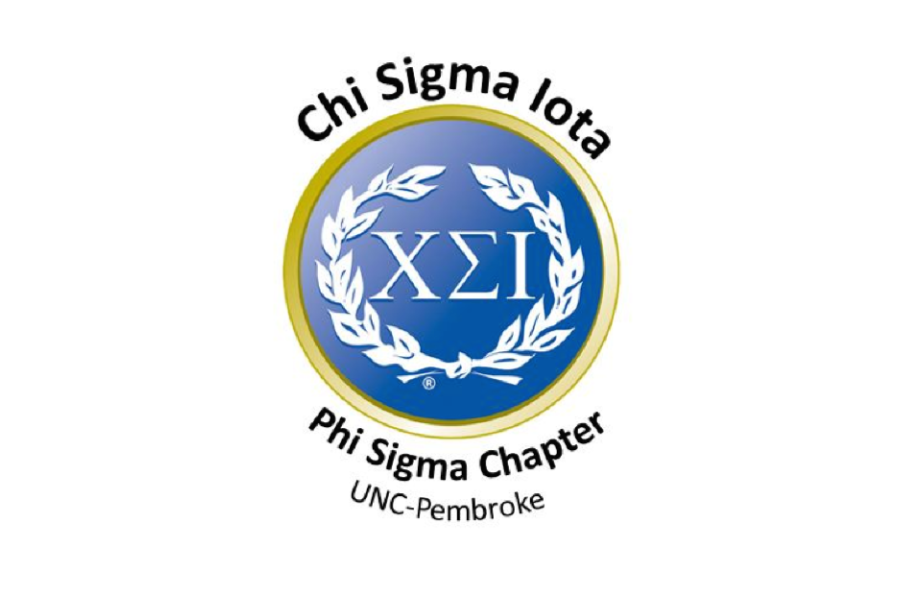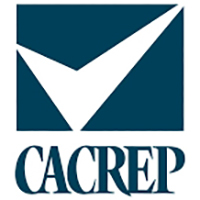Don't let the distance hold you back. You can earn your MAEd in Clinical Mental Health Counseling in Wilmington, hosted at Cape Fear Community College's North Campus. We also offer the MAEd in Professional School Counseling at this location. Same program, same support, closer to home.

Clinical Mental Health Counseling
At UNC Pembroke, the Master of Arts in Education (MAEd) in Clinical Mental Health Counseling is more than a degree — it's preparation to make a difference. With hybrid and evening classes in Pembroke and at Cape Fear, the program offers flexibility for working professionals. Faculty mentorship and real-world field experiences equip you with the skills and confidence to support others through life's challenges and take the next step in your career.
| Semester | Application Deadline | Classes Start |
|---|---|---|
| Summer I, '26 | Feb. 1, 2026 | May 26, 2026 |
| Fall, '26 | Feb. 1, 2026 | Aug. 17, 2026 |
MAEd in Clinical Mental Health Counseling
The master's in clinical mental health counseling degree program prepares you to work with individuals, couples, families and groups in a variety of settings, from hospitals and clinics to community agencies and private practice.
In this program, you'll:
- Learn to provide effective, ethical and culturally responsive counseling
- Study human development, assessment, group counseling and crisis intervention
- Build skills in addiction counseling, diagnosis, treatment planning and family systems
- Practice in real-world settings through a 100-hour practicum and two 300-hour internships
- Prepare for licensure as a Licensed Clinical Mental Health Counselor Associate (LCMHCA)
You'll also be eligible to take the National Counselor Exam (NCE) and complete field placements across North Carolina.
Additional Information
- This program is NOT 100% remote. Most classes are taught in a hybrid format. Typically, a hybrid course will meet on campus every other week.
- Classes typically meet from 5:30 to 8:30 p.m. during the fall and spring semesters and 5:30 to 9:30 p.m. during summer sessions.
- The program is 60 credit hours and can be completed in 3 years.
We accept applications for summer and fall only. Reviews start February 1 and continue on a rolling basis, until programs are full.
In addition to your application, fee and transcripts, you'll also need to:
- Have a minimum undergraduate GPA of 2.8
- Submit an essay detailing reasons for applying to the program, relevant experiences and personal career goals relevant to professional counseling, and your approach to forming effective counseling relationships with diverse populations
- Provide three professional references (such as former professors or supervisors)
- Submit a resume or CV
- Complete an interview with program faculty (typically starts around February 15)
Questions? Email The W. H. Dean Graduate School at grad@uncp.edu
Non-Degree Seeking Students
Licensed professionals can take individual counseling courses as non-degree seeking enrichment students. This is great for continuing education or licensure renewal.
To qualify, you must:
- Submit an online application and non-refundable fee
- Provide official college transcripts
- Be approved by the department (space is limited and priority goes to current degree-seeking students)
Note: Practicum and Internship courses are not open to non-degree students. Questions? Contact Non-Degree Student Coordinator Dr. Nicole Stargell, at nicole.stargell@uncp.edu.
This program is designed to meet high professional standards, and help you meet yours.
The Clinical Mental Health Counseling program is accredited by the Council for Accreditation of Counseling and Related Educational Programs (CACREP)
Coursework fulfills the educational requirements for:
- North Carolina Licensed Clinical Mental Health Counselor (LCMHC)
- National Certified Counselor (NCC) requirements from the National Board of Certified Counselors
The curriculum is shaped by the ethical codes and best practices of:
These affiliations ensure your education prepares you for licensure, certification and excellence in the field.
Post-Master’s Certificate in Clinical Mental Health Counseling
You’ll take courses in topics like diagnosis, treatment planning, family counseling and addictions. You’ll also complete supervised practicum and internship experiences. The program uses a mix of online and hybrid classes, and must be finished within four years.

Join a Counseling Honor Society


Studying Near Wilmington?
Beyond Graduation

I'm glad I chose UNCP because of the kind and welcoming atmosphere I have experienced from my classmates and the faculty!
Rosie McMahan
Clinical Mental Health CounselingCommon Careers
- Licensed Clinical Mental Health Counselor (LCMHC)
- Crisis Intervention Specialist
- Substance Use Disorder Counselor
- College or University Counselor
- Private Practice Therapist
- Community Mental Health Counselor
- Rehabilitation Counselor

Frequently Asked Questions
- Counseling is a professional relationship that empowers diverse individuals, families, and groups to accomplish mental health, wellness, education and career goals.
- Counseling was born from the field of education when Frank Parsons matched individuals with jobs that best utilized their strengths. Counseling is a strengths-based, developmental profession that uses therapy in order to promote wellness and help diverse individuals achieve their unique goals. Psychology operates within a medical model in which a specific problem is identified and addressed (although positive psychology and counseling psychology incorporate some strengths-based practices). Social work, in general, focuses on harnessing resources and providing systemic therapy.
- After you finish 8 of the 9 core courses, you can apply for practicum.
- Apply the semester before you wish to begin on site.
- For clinical mental health counseling, you'll get a list of approved sites and are responsible for contacting them to arrange your placement.
- All counseling students must pass the Counselor Preparation Comprehensive Exam (CPCE) in order to progress to an internship. Students should compile resources from all core courses in preparation for this exam.
- Clinical Mental Health Counseling and Professional School Counseling students may choose to take the National Counselor Examination (NCE) in order to earn an LCMHCA (Licensed Clinical Mental Health Counselor Associate).
- Professional School Counseling students may choose to take the Praxis II in order to earn an LSC (Licensed School Counselor, K-12).
Counseling typically hires 4 to 5 student workers each academic year. These assistantships offer faculty mentoring, research opportunities and other professional development opportunities. A number of our counseling students also work across campus. They find various positions with offices such as The Graduate School and the Center for Student Success.
Get In Touch
or call us at 910.521.6271
Associate Professor of Counseling and Director of Clinical Mental Health Counseling Department Chair of Counseling and Professor of CounselingMeet Our Faculty

Whitney Akers
910.775.4293 
Nicole Stargell
910.521.6898 Similar Programs
 The Clinical Mental Health Counseling and Professional School Counseling programs
earned accreditation from the Council for the Accreditation of Counseling and Related Education Programs (CACREP) in 2013 and re-accreditation in 2021. CACREP accreditation indicates that the graduate
counseling programs meet the quality and rigor of professionally approved standards.
In addition, the Counseling programs were one of three programs nationwide to earn
the National Board of Certified Counselors Professional Identity Award in 2013.
The Clinical Mental Health Counseling and Professional School Counseling programs
earned accreditation from the Council for the Accreditation of Counseling and Related Education Programs (CACREP) in 2013 and re-accreditation in 2021. CACREP accreditation indicates that the graduate
counseling programs meet the quality and rigor of professionally approved standards.
In addition, the Counseling programs were one of three programs nationwide to earn
the National Board of Certified Counselors Professional Identity Award in 2013.




